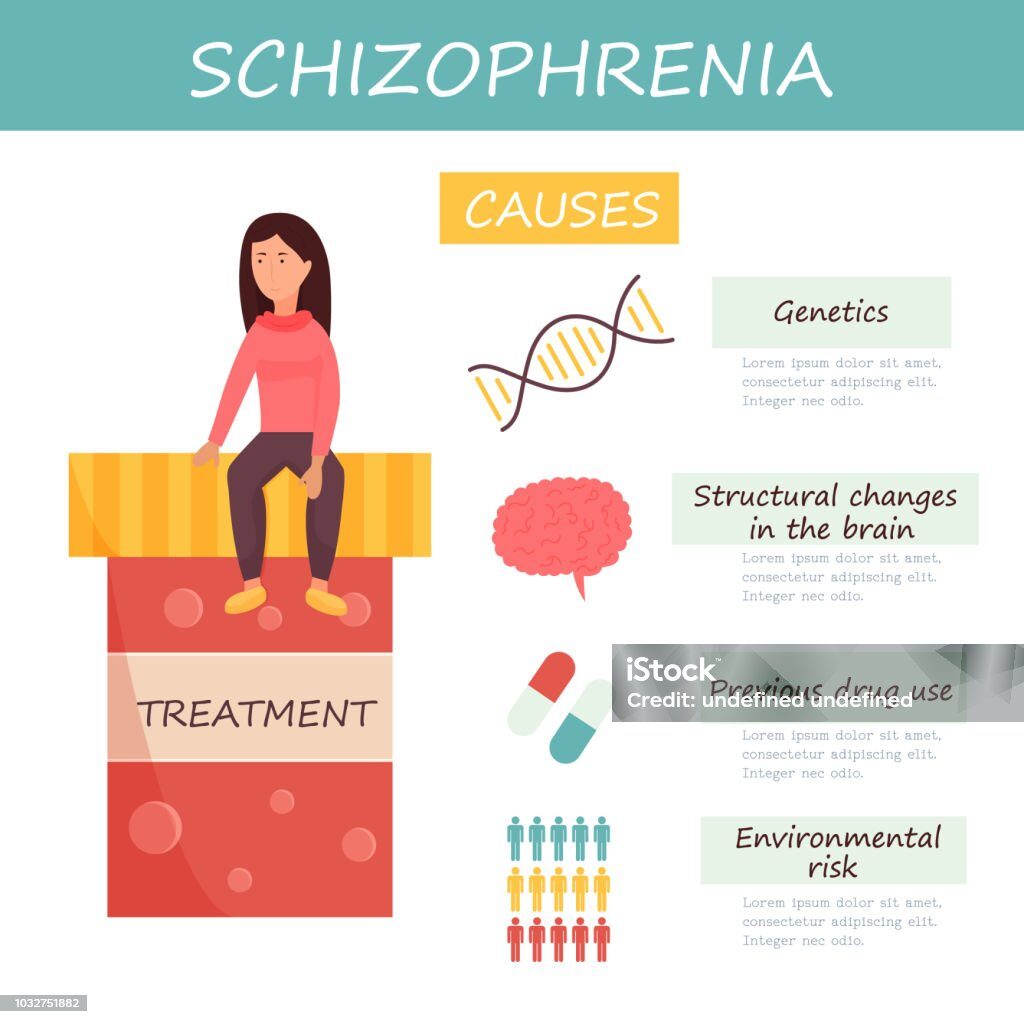Schizophrenia is a serious mental health disorder that affects how a person thinks, feels and behaves. People with schizophrenia may hear or see things that are not there (hallucinations), believe things that are not true (delusions), or have confused thoughts and speech.

It is more common and/or severe in males than females and seen more in the urban setting than the rural setting.
What are the causes of Schizophrenia?
The exact cause is not known, however it has been attributed to a mixture of genetics, brain chemistry and environmental factors. That is,

- Genetics – If a member of your family has schizophrenia, for example, your dad, the likelihood that you would have it is increased as compared to someone who does not have a history of Schizophrenia in his or her family
- Brain Chemistry – Some imbalances in the brain may play a role
- Environmental factors – Stress, drugs, prenatal exposure to viruses may increase the risk.
What are the symptoms of Schizophrenia?
The following are symptoms:
- Hallucinations – seeing or hearing things that are not real
- Delusions – believing things that are not true
- Showing less emotion
- Having less interest in life
- Avoiding social interactions
- Problems with memory, attention and decision-making.
How is Schizophrenia diagnosed?
The diagnosis is made by your doctor after taking a history of your symptoms, performing clinical examinations, and doing some tests. These include reviewing your family’s medical history, checking memory and thinking skills
How is it treated?
Currently, there is no cure for schizophrenia, but it can be managed with treatment.
It is treated through the following
- Medications: drugs help reduce symptoms like hallucinations and delusions mentioned earlier
- Therapy: talking to a therapist would help you cope
- Support services: who help with daily life and emotional support
- There are times when hospitalization is needed; you may need to stay within a hospital for observation.
Living with Schizophrenia
It is important to note that people with schizophrenia can live meaningful lives with the right treatment and support.

Some tips for living with the condition include:
- Taking the medications as prescribed by your doctor
- Getting therapy and support from support groups
- Living a healthy lifestyle by eating well, exercising and getting enough sleep
- Receiving emotional and practical support from family members.
A Word From HealthFacts To You
Although schizophrenia can be difficult to manage, with the right care and assistance, those affected can live happy, productive lives.
See a doctor if you think someone you know has schizophrenia symptoms so they can be diagnosed and given a treatment plan.
Till next time, stay informed and stay healthy!









